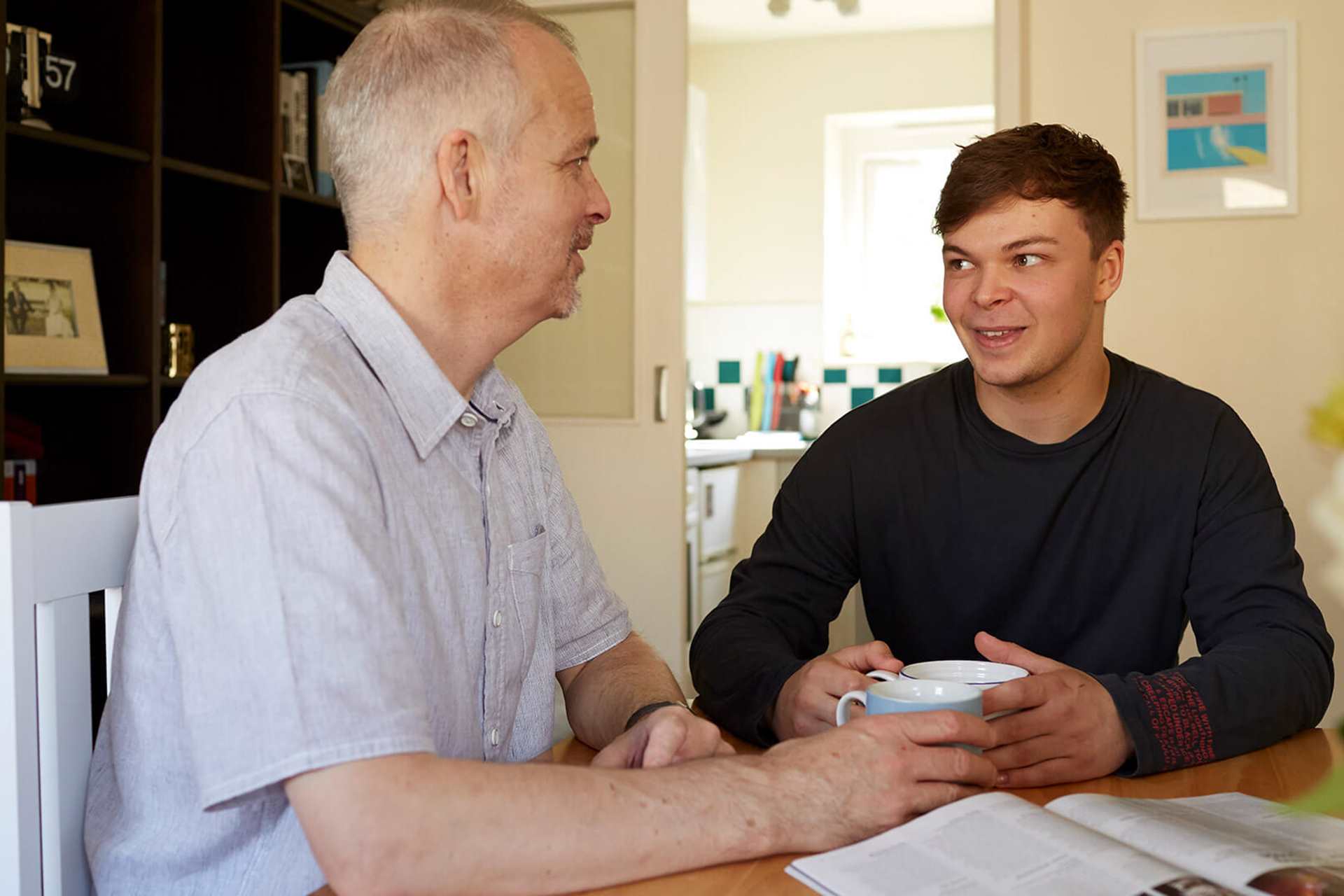Topics mentioned: anxiety, school anxiety
About: Priscilla shares the tips that have worked for her while she's been helping her son to tackle his anxiety.
My son worries a lot. A few years ago, he developed tics which manifest when he’s anxious. To help him manage his anxieties, I’ve done lots of research, from web browsing to talking to my child’s school. Here are a few tips I’d like to share that are working for my son.
1. Be curious and ask questions about what’s making your child anxious
Keep asking questions to try to understand the cause of the anxiety. What are they feeling worried about, why, what do they think will happen?
Here’s an example. Last year, my son was getting very anxious on a Sunday evening. I started to ask him various questions. Asking ‘what’s worrying you?’ led to me understanding that it was about going into school. Questioning ‘why?’ led to him telling me that school swimming was making him anxious. I continued to question. ‘Why does school swimming worry you?’. I learnt that he felt pressured to jump into the pool out of his depth and worried he might drown. I then asked him what would happen if he got into difficulty. He replied that the swimming teacher would jump in and save him. So, we concluded that he wouldn’t drown.
We’re not quite there yet. My child still gets anxious about jumping in the pool and is slowly working towards jumping in further out of his depth. But at least now I understand why he feels anxious.

2. There's lots of information out there
From web articles to books, there’s lots of helpful information available. I have personally found the child-friendly books the most effective. Many of the books tailored for children include fictional case-studies in the form of engaging and informative illustrations. These offer tips on dealing with anxiety, as well as explaining how it feels and what the causes can be. There are also plenty of story books with some lovely stories about how fictional characters have overcome anxiety. My son’s favourites are The worrysaurus, Orion and the dark, and The boy with the big feelings.
A great piece of advice that I received was to take time out each day, just you and your child, and give them 15 minutes or so of worry time.
3. Worry time
A great piece of advice that I received was to take time out each day, just you and your child, and give them 15 minutes or so of worry time. The idea is to dedicate a certain amount of time for talking about their worries, so that the whole day isn’t consumed by discussing their anxieties. It’s still important to acknowledge a concern if your child raises it outside of worry time, but also to encourage them to wait until later to discuss it properly. This dedicated time is for thrashing out their anxieties and then, hard as it can be, parking them.
4. The step-by-step approach
If your child has a particular anxiety that you can pinpoint - separation anxiety in my child’s case - try creating and implementing a step-by-step chart with them. Step one could be to play in a local park with their parent or carer watching from a safe distance. The following steps should be something that they find a little harder and will cause a bit of anxiety. The final step could then be for them to spend a couple of hours at a club or unfamiliar setting.
This one-step-at-a-time approach has helped my son grow in confidence and overcome some of his anxieties. He recently tackled the final step which was to attend a party without me staying. My husband and I were his cheerleaders throughout this approach. Keep cheering them on, it really does work!
This one-step-at-a-time approach has helped my son grow in confidence and overcome some of his anxieties.

5. Are your child’s predictions correct?
Encourage your child to predict. For instance, if they are worried about going to a party, encourage them to predict what they think will happen. My son worried that I wouldn’t come back to pick him up, or that he would get separated from his friends. Then after the event, ask them if their predictions were correct. It’s likely that they won’t be. This will help teach them that it’s unlikely that the worst will happen.
Remember, you may need support too. Don’t be afraid to ask for help.
6. Talk to friends and/or family
You never know who’s going through the same thing and can offer valuable advice. Remember, you may need support too. Don’t be afraid to ask for help. I did and without the support that I have received, I wouldn’t be able to write this post and share what I have learnt.
Useful helplines and websites
-
YoungMinds Parents Helpline
We support parents and carers who are concerned about their child or young person's mental health. Our Parents Helpline provides detailed advice and information, emotional support and signposting.
You can speak to us over the phone or chat to us online.
You can speak to us over webchat between 9.30am and 4pm from Monday-Friday. When we’re closed, you can still leave us a message in the chat. We’ll reply to you by email in 3-5 working days.
- Opening times:
- 9.30am-4pm, Monday-Friday
-
Anxiety UK
Provides information, support and advice for anyone struggling with anxiety.
- Opening times:
- 10.30am-4.30pm, Monday-Friday
-
Parenting Mental Health
Digital support community and charity offering information, peer support, facilitated listening circles, mentoring and courses for parents of children with mental health difficulties.
Founder Suzanne Alderson’s book Never Let Go - How to Parent Your Child Through Mental Illness (Penguin, 2020) outlines how she supported her daughter to recovery after she became depressed and suicidal.
More advice for parents and carers
Spread the word






